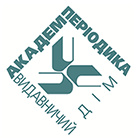ANALYSIS OF ORGANIZATIONAL AND ECONOMIC SUPPORT OF URBAN PARKS OF UKRAINE BASED ON POLLS
Section Economics: Economic and Legal Problems of Regional Development
Abstract
The development of comfortable urban parks is impossible without determining the priority needs and preferences of citizens. With the increasing pace of urbanization and the density of urban population, public green spaces must be designed to meet the needs of different categories and segments of the population. This is a difficult task, given the significant demand of urban parks, and the limited nature of their areas. Therefore, in order to increase the public and economic effects, the planning of park space must take into accountconsider the opinion of citizens. The purpose of this article is to present the results of sociological research in Ukraine on the satisfaction of the local parks and the formation of a universal and simple methodology of the questionnaire survey analysis. The research is based on the foreign experience of questioning the improvement of city parks and theoretical works of Ukrainian and foreign scientists on the importance of park space in cultural life. The accessibility of the questionnaire survey and its simple interpretation will allow in the future to introduce the survey in the practice of state and public institutions. The task of the questionnaire survey is to simplify the connection between state institutions and the public, to increase the level of mutual understanding and interaction. The following research methods were used in the article: questionnaire survey using electronic communication resources, analytical method and logical generalization. The questionnaire survey is constructed in such a way as to show the consumer potential of existing parks and consumer preferences of visitors. By comparing these characteristics in the analysis, you can understand how existing park facilities meet the needs of citizens. In the process of the questioning, there were revealed the problems of surveys in Ukraine, as well as some priority features of the needs of citizens in the use of parks for residents of large and small cities, the current problems in the improvement of green areas of the main categories of cities in Ukraine. In order to disseminate the experience of questionnaire surveys in the field of park improvement and to increase the popularity of this method of public relations, a universal method of assessing the results of the survey was proposed, which is acceptable in the evaluation of any questionnaire, easy to use and gives a clear understanding of the priority of certain areas. The work aims to embody an integrated approach to park improvement, in which green spaces are seen as important public space in cities, so they are designed and modernized with the participation of public opinion.
REFERENCES
1. Petrenko-Lysak A., Chornohub N. Metodychni rekomendatsii z provedennia onlain opytuvan hromadskosti pry planuvanni hromadskykh prostoriv. 2020. 11 s. URL: https://rm.coe.int/guidelines-for-online-questionnairesregulations-on-public-spaces-deve/1680a09788 [in Ukrainian].
2. Küller R. Environmental assessment from a neuropsychological perspective. In T. Gärling & G. Evans (eds.). Environment, cognition and action: An integrated approach. Oxford University Press, 1991. P. 111—147.
3. Riechers M., Noack E. M., Teja Tscharntke T. Experts’ versus Laypersons’ Perception of Urban Cultural Ecosystem Services. Urban Ecosystems. 2017. Vol. 20 (3). P. 715—727. https://doi.org/10.1007/s11252-016-0616-3
4. Gai S., Fu J., Rong X. & Dai L. Importance-performance analysis and improvement of an urban park’s cultural ecosystem services based on users’ perspectives: A Beijing case study. Journal of Asian Architecture and Building Engineering. 2022. https://doi.org/10.1080/13467581.2022.2049800
5. Kovtun V.D. Sotsiolohiia parkobudivnytstva yak napriam haluzevoi sotsiolohii. Kultura i suchasnist. Kyiv: DAKKKiM, 2005. Iss. 2. P. 154-160 [in Ukrainian].
6. Kovtun V.D. Rol i mistse parku kultury i vidpochynku v sferi industrii rozvah. Nova sotsiokulturna realnist v Ukraini: teoriia, metodolohiia, praktyka: zb. materialiv Vseukr. nauk. konf. (m. Kyiv, 22—23 kvit.nia 2008 r.). 2008. P. 63—67 [in Ukrainian].
7. Kliuchko Yu.M., Kovtun V.D., Troielnikova L.O., Tsymbaliuk N.M. Kulturno-dozvillieva sfera Ukrainy: dynamika zmin ta peretvoren: monohrafiia. Kyiv: Derzhavna akademiia kerivnykh kadriv kultury i mystetstv, 2003. 180 p. [in Ukrainian].
8. Kopiievska O. R. Sotsialno-kulturni aspekty orhanizatsii diialnosti parkiv v krainakh zarubizhzhia: avtoref. … kand. ped. nauk: 13.00.06. Kyiv, 1999. 19 p. [in Ukrainian].
9. Petrova I.V. Dozvillia v zarubizhnykh krainakh. Kyiv: Kondor, 2005. 408 p. [in Ukrainian].
10. Kovtun V.D. Perspektyvy sotsiolohichnykh doslidzhen parkovoi sfery. Kulturolohichna dumka. 2010. No. 2. P. 173—178. URL: http://nbuv.gov.ua/UJRN/Kultdum_2010_2_27 [in Ukrainian].
11. Kuznietsov S.I. Bioekolohichni zasady sadovo-parkovoho budivnytstva: mynule, suchasne, maibutnie. Introduktsiia roslyn, zberezhennia ta zbahachennia bioriznomanittia vbotanichnykh sadakh i dendroparkakh: materialy. Mizhnar. nauk. konf. Kyiv: Fitosotsiotsentr, 2010. P. 71-73 [in Ukrainian].
12. Klymenko Yu.O., Kuznietsov, S.I., Cherniak. V.M. Starovynni parky Ukrainy zahalnoderzhavnoho znachennia. Chastyna I. Polissia ta Lisostep. Ternopil: Mandrivets, 1996. 106 p. [in Ukrainian].
13. Publications & Research. The National Recreation and Park Association (NRPA). https://www.nrpa.org/publicationsresearch/
14. Rubel O.Ie., Zhykhareva. A.A., Reznichenko N.M. Tendentsii formuvannia innovatsiinykh zasad rozvytku ekosystemnykh posluh v Ukraini ta YeS yak skladovoi “zelenoi ekonomiky”. Naukova dopovid. Instytut problem rynku ta ekonomiko-ekolohichnykh doslidzhen NAN Ukrainy. Odesa, 2018. 26 p. [in Ukrainian].
15. Vernihorova N. Institutional prerequisites for organizational and economic quality assurance of ecosystem services of city parks. Three Seas Economic Journal, 2021. Vol. 2. No. 3. P. 8-15. https://doi.org/10.30525/2661-5150/2021-3-2
Keywords
park improvements, citizen needs assessment, questionnaire survey and economic solutions, urban space development
Downloads
References
2. Küller R. Environmental assessment from a neuropsychological perspective. In T. Gärling & G. Evans (eds.). Environment, cognition and action: An integrated approach. Oxford University Press, 1991. P. 111—147.
3. Riechers M., Noack E. M., Teja Tscharntke T. Experts’ versus Laypersons’ Perception of Urban Cultural Ecosystem Services. Urban Ecosystems. 2017. Vol. 20 (3). P. 715—727. https://doi.org/10.1007/s11252-016-0616-3
4. Gai S., Fu J., Rong X. & Dai L. Importance-performance analysis and improvement of an urban park’s cultural ecosystem services based on users’ perspectives: A Beijing case study. Journal of Asian Architecture and Building Engineering. 2022. https://doi.org/10.1080/13467581.2022.2049800
5. Ковтун В.Д. Соціологія паркобудівництва як напрям галузевої соціології. Культура і сучасність. Київ: ДАКККіМ, 2005. Вип. 2. С. 154—160.
6. Ковтун В.Д. Роль і місце парку культури і відпочинку в сфері індустрії розваг. Нова соціокультурна реальність в Україні: теорія, методологія, практика: зб. матеріалів Всеукр. наук. конф. (м. Київ, 22—23 квіт. 2008 р.). 2008. С. 63—67.
7. Ключко Ю.М., Ковтун В.Д., Троєльнікова Л.О., Цимбалюк Н.М. Культурно-дозвіллєва сфера України: динаміка змін та перетворень: монографія. Київ: Державна академія керівних кадрів культури і мистецтв, 2003. 180 с.
8. Копієвська О. Р. Соціально-культурні аспекти організації діяльності парків в країнах зарубіжжя: автореф. … дис. канд. пед. наук: 13.00.06. Київ, 1999. 19 с.
9. Петрова І.В. Дозвілля в зарубіжних країнах. Київ: Кондор, 2005. 408 с.
10. Ковтун В.Д. Перспективи соціологічних досліджень паркової сфери. Культурологічна думка. 2010. № 2. С. 173—178. URL: http://nbuv.gov.ua/UJRN/Kultdum_2010_2_27 (дата звернення: 10.07.2022).
11. Кузнєцов С.І. Біоекологічні засади садово-паркового будівництва: минуле, сучасне, майбутнє. Інтродукція рослин, збереження та збагачення біорізноманіття вботанічних садах і дендропарках: матеріали Міжнар. наук. конф. Київ: Фітосоціоцентр, 2010. С. 71—73.
12. Клименко Ю.О., Кузнєцов, С.І., Черняк. В.М. Старовинні парки України загальнодержавного значення. Частина І. Полісся та Лісостеп. Тернопіль: Мандрівець, 1996. 106 с.
13. Publications & Research. The National Recreation and Park Association (NRPA). https://www.nrpa.org/publicationsresearch/ (дата звернення: 10.07.2022).
14. Рубель О.Є., Жихарева. А.А., Резніченко Н.М. Тенденції формування інноваційних засад розвитку екосистемних послуг в Україні та ЄС як складової «зеленої економіки»: Наукова доповідь. Інститут проблем ринку та економіко-екологічних досліджень НАН України. Одеса, 2018. 26 с.
15. Vernihorova N. Institutional prerequisites for organizational and economic quality assurance of ecosystem services of city parks. Three Seas Economic Journal, 2021. Vol. 2. № 3. P. 8—15. https://doi.org/10.30525/2661-5150/2021-3-2
Abstract views: 241 PDF Downloads: 154









